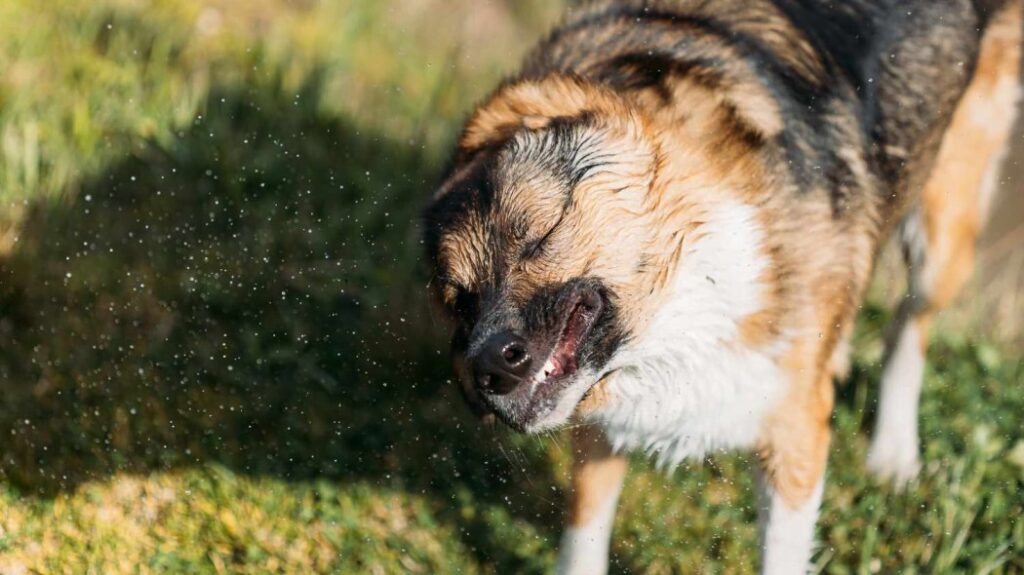As the cold winds of winter blow in, our four-legged friends may suffer from seasonal allergies. While we usually identify allergies with the spring and summer seasons, winter has its triggers that might affect our dogs. There are, thankfully, simple yet effective techniques to protect your pets against winter allergies.
Here are seven easy tips to keep your furry friends comfortable during the colder months.

Regular Grooming Sessions
Keeping a pet grooming schedule is essential for reducing winter allergies in dogs. Brushing not only removes loose hair and dander but it also reduces allergy accumulation. Dander, dust, and other allergens can collect in pets’ fur during the winter when they spend more time indoors. Frequent grooming, especially outside, helps decrease these irritants, preventing allergies.
Clean Bedding and Living Spaces
During the winter, dogs, like us, need warmth and comfort. Their living spaces must be clean and allergen-free. To eradicate dust mites, pollen, and other allergies, wash your pet’s bedding regularly using a mild detergent, and vacuuming carpets, rugs, and furniture where your pet sleeps can also aid in removing allergies.
Foot Wiping
After walks, thoroughly clean your pet’s paws to remove any allergens that may have accumulated outside. This easy technique aids in the removal of pollen, dust, and other irritants that may cause allergic responses. Pet owners can limit the likelihood of allergies entering the household by periodically washing their paws. This modest but significant step protects your pet’s well-being by reducing the chance of allergic reactions and maintaining a cleaner indoor environment for your furry buddy.

Allergy Testing
Allergy testing is a focused method for identifying specific allergens affecting your pet’s health. These tests drive individualized treatment regimens by identifying triggers such as pollen or dust mites. Veterinary doctors perform skin or blood testing, allowing for precise diagnosis and successful allergy treatment in your cat. Understanding these triggers enables pet owners to build conditions that reduce exposure, promoting improved health and comfort for their canine friends.
Maintain Indoor Humidity Levels
Winter indoor heating can cause dry air, aggravating dogs’ allergies. To maintain appropriate indoor humidity levels, consider utilizing a humidifier. Moist air can benefit pets with dry skin and lessen allergy-related inflammation. However, keep the humidity level regulated since too much moisture might promote mold formation, which can be an allergy.
Proper Nutrition and Hydration
A balanced diet will help boost your pet’s immune system and reduce the chances of allergies. Ensure your pet’s diet contains high-quality, well-balanced food appropriate for their needs. Furthermore, enough fresh water is required to avoid dehydration, which can exacerbate allergic responses and dry skin issues.
Speak with your veterinarian
Consulting with your veterinarian is critical if your pet exhibits discomfort or chronic allergic responses over the winter. They can provide specific suggestions and, if necessary, prescribe drugs or therapies. Professional assistance guarantees that your pet’s allergies are addressed efficiently and securely.
Say Goodbye to Allergies
By incorporating these simple yet effective tips into your pet care routine, you can significantly reduce the impact of winter allergies on your furry companions. Remember, observing your pet’s behavior and health closely and seeking professional advice is vital in ensuring their comfort and well-being during the colder months.
Conclusion
Each pet is unique, and what works for one may not work for another. If you suspect your pet is suffering from allergies, consult with your veterinarian for personalized advice and treatment options. By taking these steps, you can help ensure your pet stays healthy and comfortable throughout the winter months.

0 Comments